Nobel Peace Prize: When war-mongers are felicitated in the name of 'peace'
By Humaira Ahad
The magnificent ceremonial rooms of Stockholm City Hall’s Golden Hall, adorned with millions of gold leaf pieces and colored glass, welcomed hundreds of white-collar guests for the Nobel Prize ceremony on Tuesday.
The Nobel Prize banquet is held annually on December 10, commemorating the anniversary of Alfred Nobel’s death.
Nearly 50 percent of the laureates attending the fancy white-tie ceremony meet Swedish royalty and are awarded a gold medal. This association with the wealthiest five percent of society often adds a layer of controversy to the entire Nobel Award affair.
Over the years, the Nobel Prize, particularly the Nobel Peace Prize, has been highly politicized. It is awarded based not on merit but rather on strong political connections, according to experts, which is primarily while war-mongers are felicitated in the name of peace.
Past recipients include contentious figures such as former US President Barack Obama, whose drone strikes killed thousands in West Asia; Aung San Suu Kyi, under whose regime the Rohingya Muslims in Myanmar faced multiple massacres; Shimon Peres, the former foreign minister of the Israeli regime accused of war crimes against Palestinian civilians; and Narges Mohammadi, a provocateur of unrest in Iran and a recipient of significant Western backing.
A promotional stunt by the ‘merchant of death’
Alfred Nobel, infamously nicknamed the “merchant of death,” famously used the Nobel Prize as a promotional strategy to repair his tarnished public image.
As the inventor of dynamite and other explosives, Nobel was widely criticized for profiting from dynamite and other explosives that caused widespread destruction.
In 1888, a French newspaper mistakenly reported Nobel’s death, publishing the headline: “The merchant of death is dead.” The obituary claimed that Nobel “became rich by finding ways to kill more people faster than ever before.”
This premature obituary deeply disturbed Nobel, who realized that his legacy could be defined by these damning words. Motivated by this fear, he established the Nobel Prize—a well-choreographed effort at rebranding and a public relations exercise designed to leave behind a more positive legacy.
Panelist: Should we give Iran the Nobel Peace Prize this year or the Houthis?@georgegalloway: Neither will get the prize as you have to be a warmonger for the empire to get that prize! @OutWithGalloway pic.twitter.com/hkLMaFcFe7
— Press TV 🔻 (@PressTV) April 18, 2024
The tarnished legacy of the Nobel Prize
The Nobel Prize, born out of this calculated maneuver, has been mired in controversy ever since. Over the years, it has been awarded to individuals accused of promoting war and committing atrocities against ordinary citizens, from the West to the East.
Despite being named the Nobel Peace Prize, the award often has little to do with promoting peace and condemning war. Instead, it has frequently honored individuals who are seen as war criminals or politically driven figures.
The list of controversial Nobel Peace Prize recipients, who have been war-mongers, is long.
Woodrow Wilson, the 28th President of the United States, was awarded the Nobel Peace Prize in 1919, despite initiating military interventions in 12 countries and using deceit to justify American involvement in World War I.
Aung San Suu Kyi, a leader of Myanmar, received the Nobel Peace Prize in 1991 “for her non-violent struggle for democracy and human rights.” However, she oversaw policies that facilitated the annihilation of Rohingya Muslims through military-led mass killings.
This pattern highlights that the Nobel Peace Prize is often influenced by political motives rather than genuine contributions to peace.
Arwa Mahdawi, a New York-based writer, aptly summarizes the skepticism surrounding the prize.
“The Nobel Peace Prize is a farce; it has been for a long time. Really, it’s time we stopped pretending otherwise and put an end to the pomp and pretense altogether. Indeed, it’s amazing anyone can still say the words ‘Nobel Peace Prize’ with a straight face considering its recipients constitute a who’s who of hawks, hypocrites, and war criminals,” she noted.
Controversial winners
Barack Obama
One of the most controversial Nobel Peace Prizes in recent years was awarded to Barack Obama in 2009. The Nobel Committee praised him for his “extraordinary efforts to strengthen international diplomacy and cooperation between peoples.”
However, during his presidency (2009–2015), Obama dramatically expanded and normalized the use of armed drones in countries such as Yemen, Pakistan, Libya, and Somalia.
Dubbed the “drone president,” he authorized 542 strikes that resulted in an estimated 3,797 deaths, according to human rights groups.
“Turns out I’m good at killing people. Didn’t know that was going to be a strong suit of mine,” Obama was reported saying to his senior aides in 2011.
Did you know that ....
— Press TV 🔻 (@PressTV) March 21, 2023
Barack Obama who won the Nobel Peace Prize, dropped at least 26,171 bombs on civilians. This means every day, the US military dropped 72 bombs in its wars! pic.twitter.com/uWLbxcxD1v
Henry Kissinger
The former US diplomat received the Nobel Peace Prize in 1973 for negotiating a ceasefire during the Vietnam War. Yet, Kissinger’s policies fueled devastating wars in neighboring Cambodia and beyond.
His widely documented war crimes span across countries including Argentina, Bangladesh, Cambodia, Chile, Cyprus, East Timor, Palestine, South Africa, and Vietnam.
As the US Secretary of State, Kissinger shaped America's interventionist foreign policy, which later helped America establish its hegemony and imperialism globally.
Christopher Hitchens, in his 2001 book The Trial of Henry Kissinger, remarked:
“The U.S. could either persist in averting their gaze from the egregious impunity enjoyed by a notorious war criminal and lawbreaker, or they can become seized by the exalted standards to which they continually hold everyone else.”
Shimon Peres
The former Israeli regime's Prime Minister received the Nobel Peace Prize in 1994 for his role in the Oslo Accords alongside Israel’s prime minister of the time, Yitzhak Rabin, and former Palestinian leader Yasser Arafat.
The accords failed to recognize Palestinian statehood and allowed illegal Israeli settlements to expand in the occupied Palestinian territories.
According to the European Union statistics of 2023, roughly 121,000 settlers were living in the occupied Palestinian territories when the Oslo Accords were signed. Now the number exceeds 600,000 settlers.
Peres played a key role in the military regime imposed on Palestinian citizens until 1966, under which the occupying regime carried out mass land theft and displacement.
During Peres’ tenure as the military affairs minister from 1974 to 1977, many settlements were established in the occupied West Bank. These illegal settlements were built on confiscated privately owned Palestinian land.
Pere has also been described as “an architect of Israel’s nuclear weapons program.”
As the regime’s prime minister in 1996, he ordered and oversaw the killing of 154 civilians in Lebanon by the Israeli occupation army. The operation, widely believed to have been a pre-election show of strength, saw Lebanese civilians intentionally targeted.
Another notorious incident was the Qana massacre when the Israeli regime forces shelled a United Nations compound and killed 106 sheltering civilians.
“Everything was done according to clear logic and in a responsible way. I am at peace,” Peres said later about the incident.
Narges Mohammadi
Last year’s Nobel Peace Prize was given to Narges Mohammadi, an Iranian citizen who became popular in the West for her involvement in subversive activities in the Islamic Republic of Iran.
Mohammadi was following the directions of various Western agencies, as evidence revealed.
The 52-year-old who was falsely referred to as the champion of women’s rights by the Noble Peace Prize Committee was at the forefront of the 2022 deadly riots in Iran.
Due to her social media activities and the backing of Western agencies, the Nobel Peace Prize committee chose her for the award in 2023.
Mohammadi serves as vice president of the so-called Defenders of Human Rights Center (DHRC), a Western-funded organization headed by Shirin Ebadi, a prominent anti-Iran figure and 2003 recipient of the Nobel Peace Prize.
Mohammadi’s primary activities have mostly revolved around writing on social media and giving statements to foreign media regarding men who were jailed in Iran for murders and terrorist attacks.
Like Ebadi, Mohammadi received large sums of money from her Western backers to create a ruckus.
Iran seeks South Korea’s assistance for AI, fiber-optic projects
VIDEO | Iran's 'Eqtedar' (Power) maneuver
Israel hits HTS military target in Syria for 1st time since fall of Assad
VIDEO | Press TV's news headlines
Israel has slaughtered 13,000 students in Gaza, West Bank
VIDEO | More Zionist than Zionists: Biden’s legacy to be defined by Gaza genocide
Hamas confirms handing approval of Gaza ceasefire deal to mediators
VIDEO | Iran: Show of strength


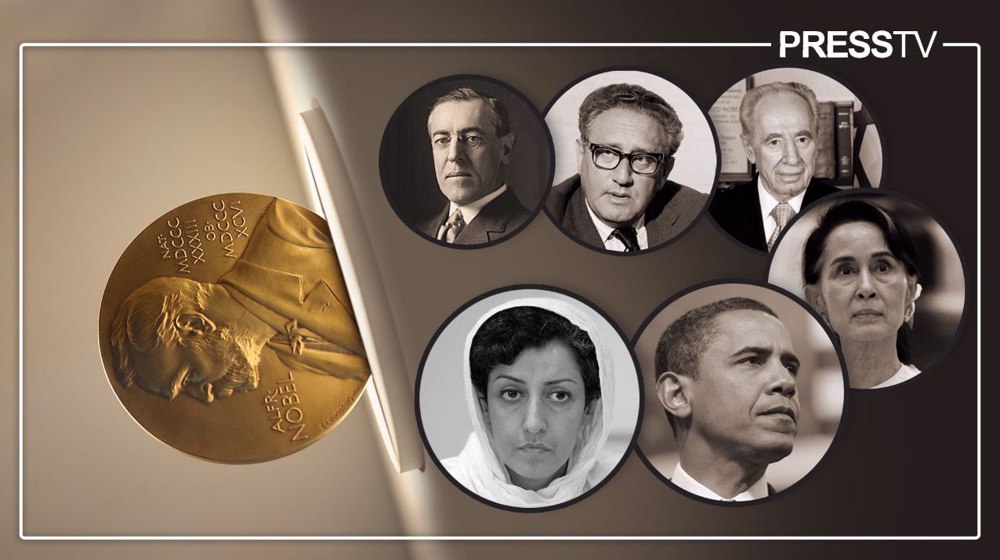
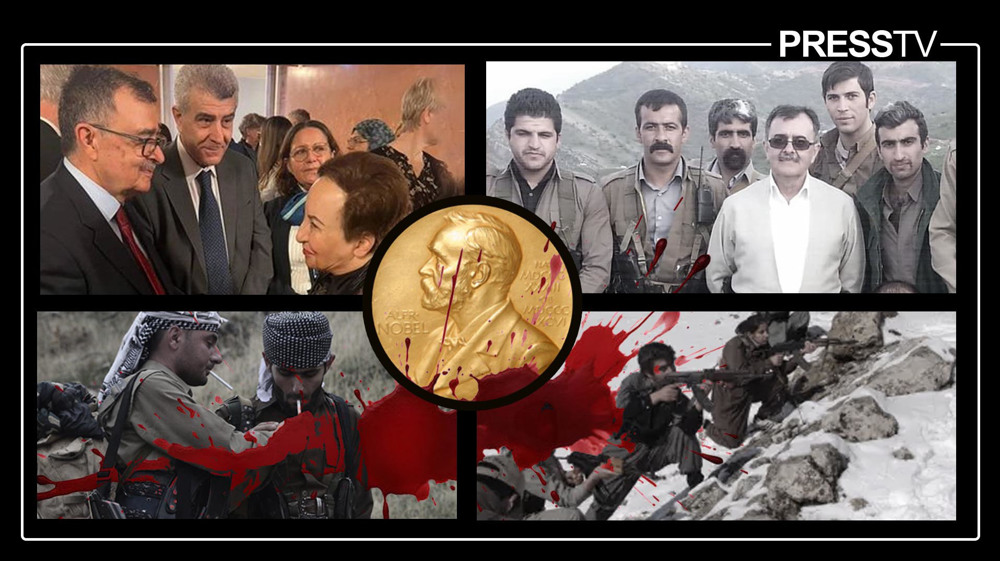

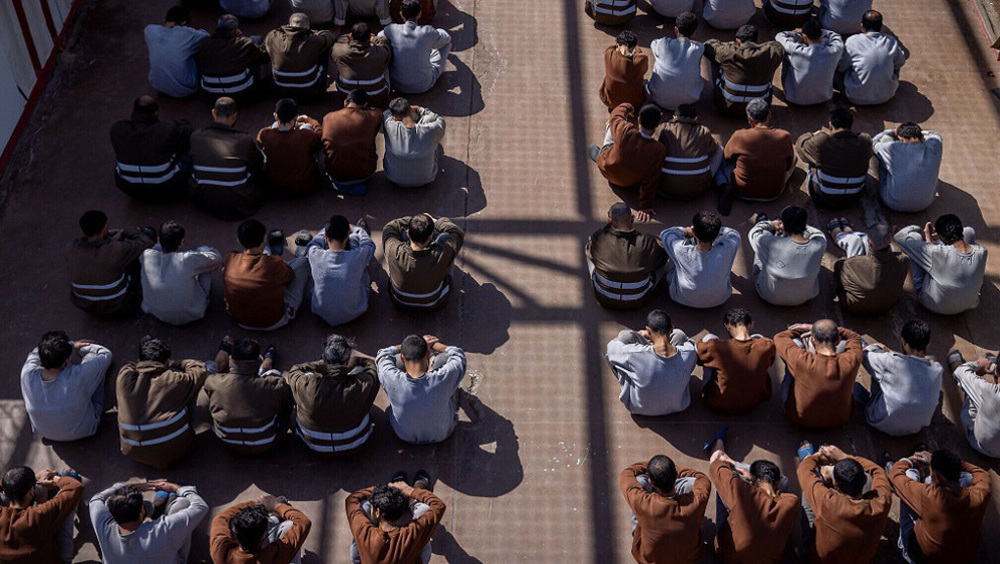
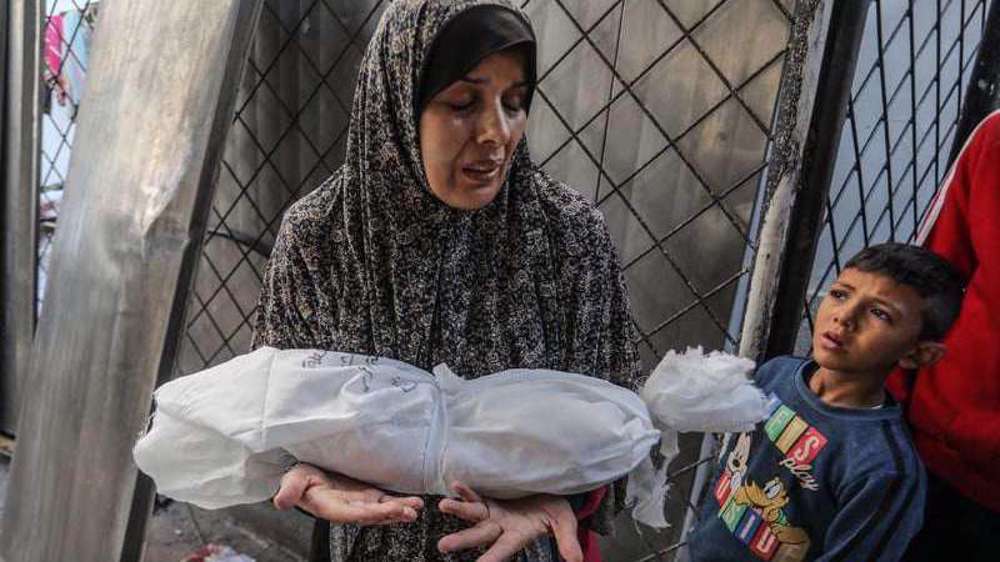



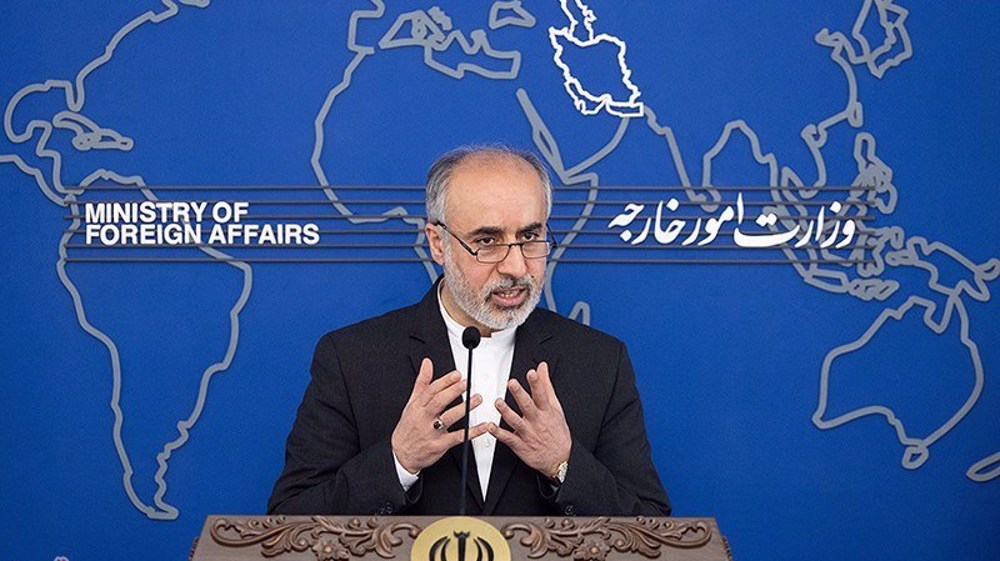
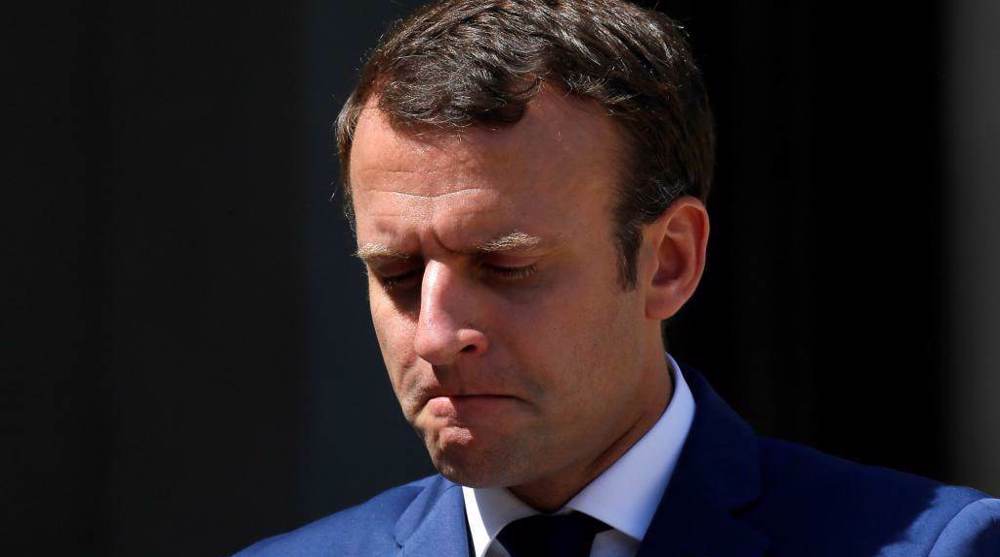



 This makes it easy to access the Press TV website
This makes it easy to access the Press TV website